The Follow-Up on The Hague Study Visit: Insights and Outcomes from Participants
March 22, 2024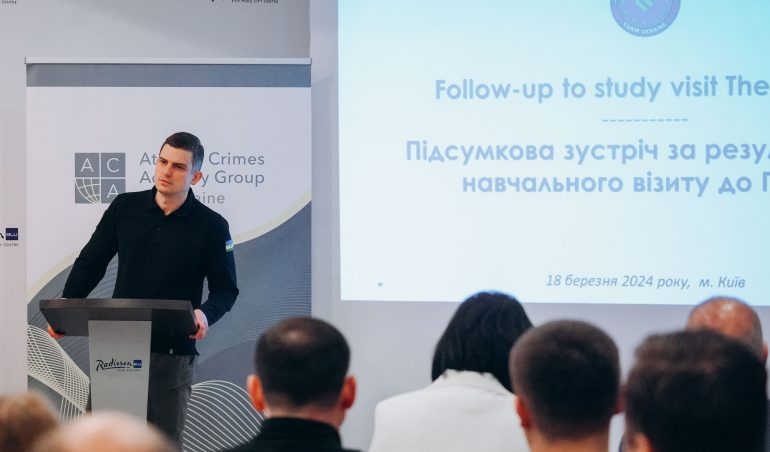
The Ukrainian media frequently headlines discussions about the Hague tribunal on the accountability of the Russian political leadership and military commanders for international crimes committed in Ukraine, without always clarifying that The Hague homes multiple tribunals, courts and institutions dedicated to addressing such crimes. It is essential for the relevant Ukrainian agencies to establish and maintain cooperation with their international colleagues, who could play a significant role in bringing to justice those responsible for the grave international crimes Ukrainians are currently facing. To encourage the cooperation between Ukrainian authorities and partner organisations in the Netherlands, the European Union Advisory Mission (EUAM) Ukraine and the Ministry of Foreign Affairs of the Netherlands organised a study visit to The Hague for Ukraine’s investigators and prosecutors in October 2023.
This week, the Mission and the Embassy of the Kingdom of the Netherlands in Ukraine convened a follow-up meeting to discuss the outcomes of the study visit. The event focused on specific topics concerning the investigation and prosecution of international crimes, alongside insights from participants of the visit to The Hague regarding recent developments in this area over the past six months.
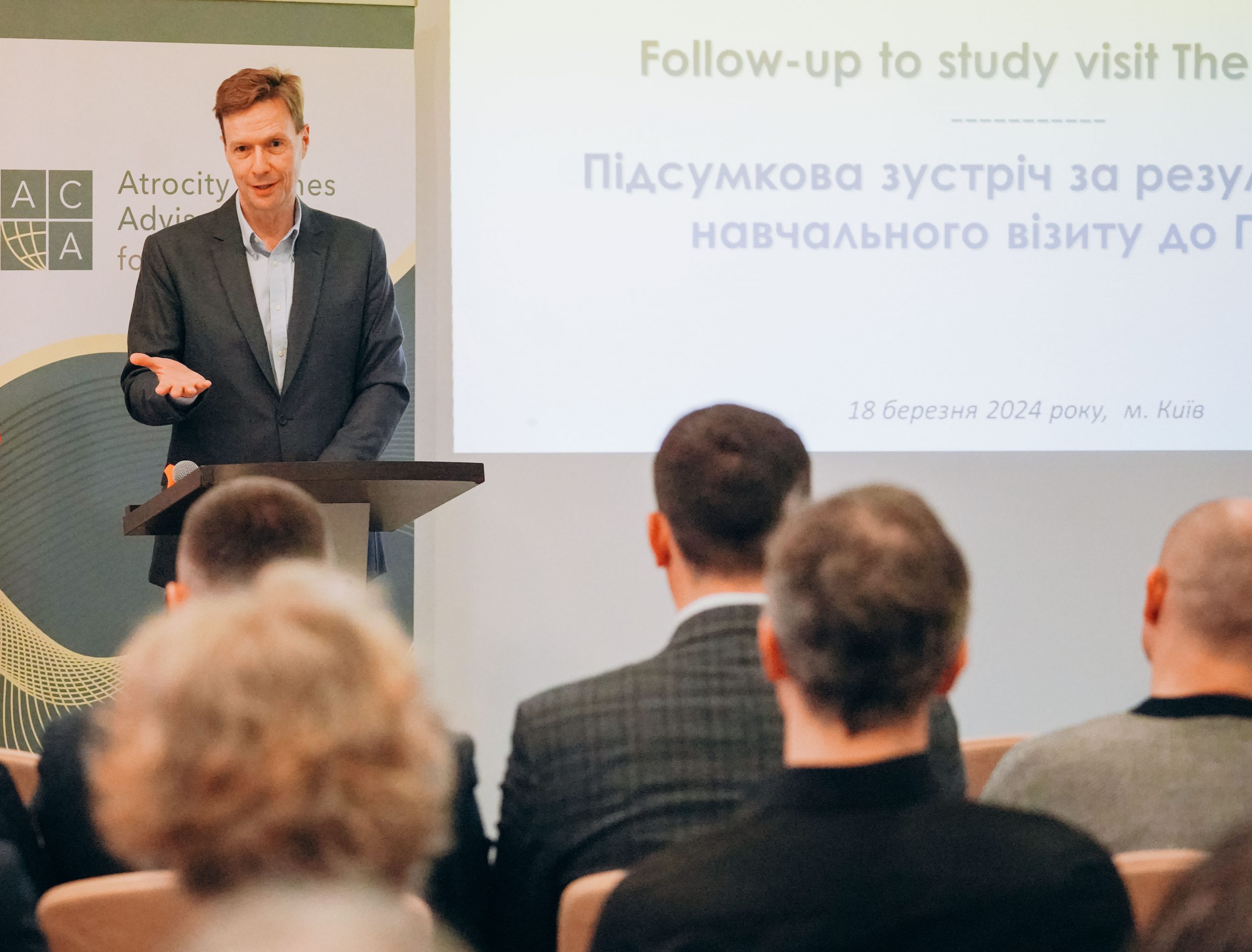
Rolf Holmboe, EUAM’s Head of Mission, opened the event by expressing gratitude to the Government of the Kingdom of the Netherlands for its support. Holmboe noted the increase in the severity of international crimes committed in Ukraine since 2014, especially following Russia’s full-scale invasion, and emphasised the significance of sharing insights from Ukrainian officials on the most recent developments in the investigation and prosecution of international crimes. He underlined EUAM’s commitment to adjusting assistance to maximise benefits for Ukrainian partners.
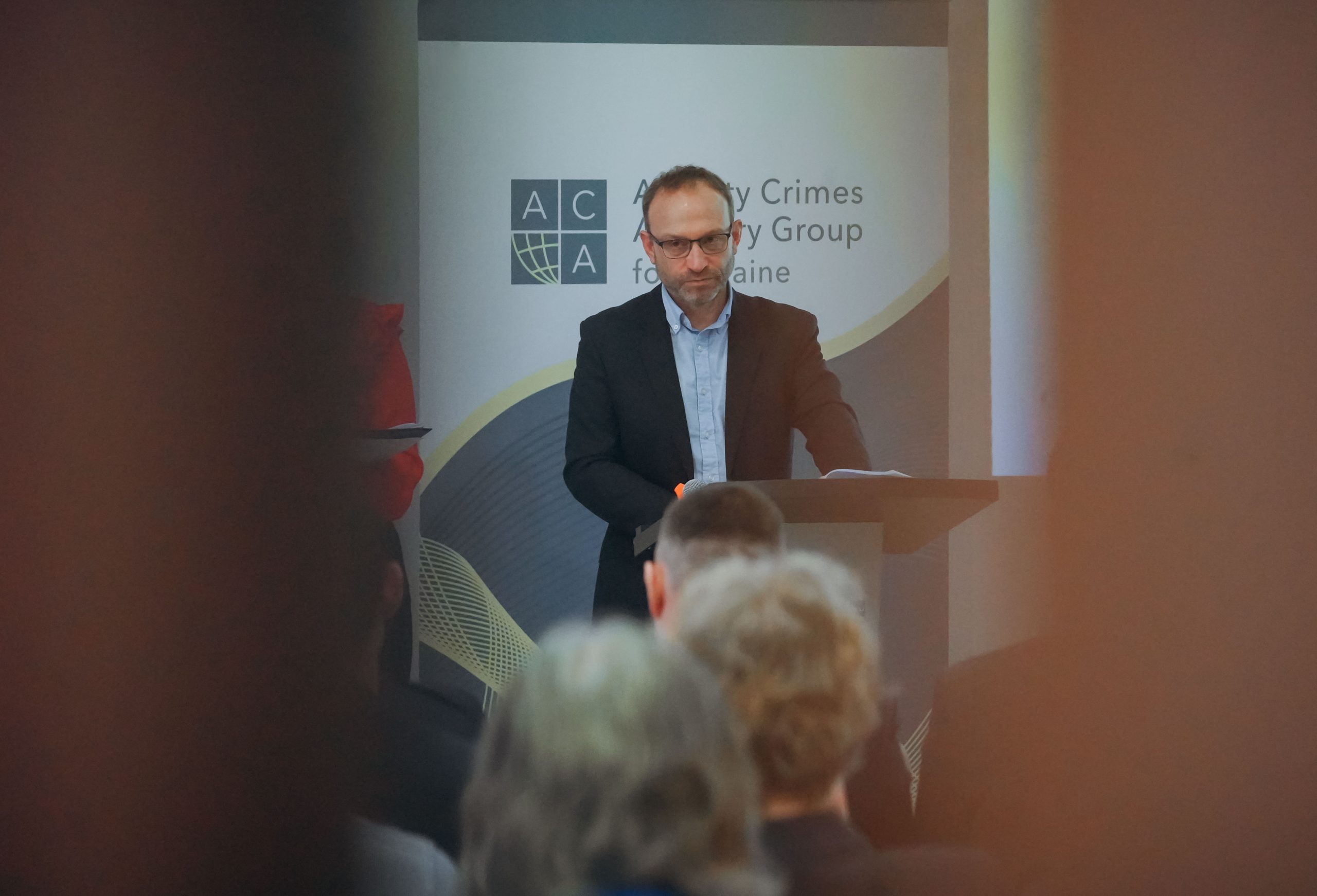
The morning session offered a platform for a comprehensive review of recent developments in investigating and prosecuting crimes amid Russia’s aggression. Andrew Carney, Head of the International Crimes Component within EUAM, emphasised the enormity of the challenges faced by Ukrainian agencies in this context. He stressed the importance of inter-agency cooperation and reaffirmed EUAM’s readiness to provide tailored assistance, enhancing the capabilities of Ukraine’s security and justice sectors.
Oleksiy Khomenko, First Deputy Prosecutor General of Ukraine, expressed his gratitude towards EUAM and Dutch authorities for the valuable experience gained during the study visit to The Hague. He praised it as a crucial chance for in-depth engagement with international counterparts and learning from international justice experts. Khomenko appreciated the inclusion of the Interagency Working Group representatives in the delegation, highlighting their important role in war crime investigations. Also, he shared that the Office of the Prosecutor General convened a meeting this February to harmonise investigation standards and case structuring approaches among prosecutorial and pre-trial investigation unit heads dealing with international crimes linked to the Russian aggression.
National Police officers face daily challenges when responding to war crime scenes amid hostilities. Dmytro Shevchuk, Deputy Head of the War Crimes Department of the National Police of Ukraine (NPU), recalled a significant incident in February in the Sumy region where Russian military actions resulted in the death of two senior officers and injuries to four investigators and two explosives experts. “I have no doubt that the Russians were aware of the presence of police officers at the scene of their previous attack. This is not the first time they have re-targeted a site after ambulances and police had arrived at the scene of a crime,” he said. This pattern was confirmed by the devastating Russian missile attack in Odesa last week, which killed 20 people, including medics, police, and emergency workers who had come to help the victims of an earlier attack.
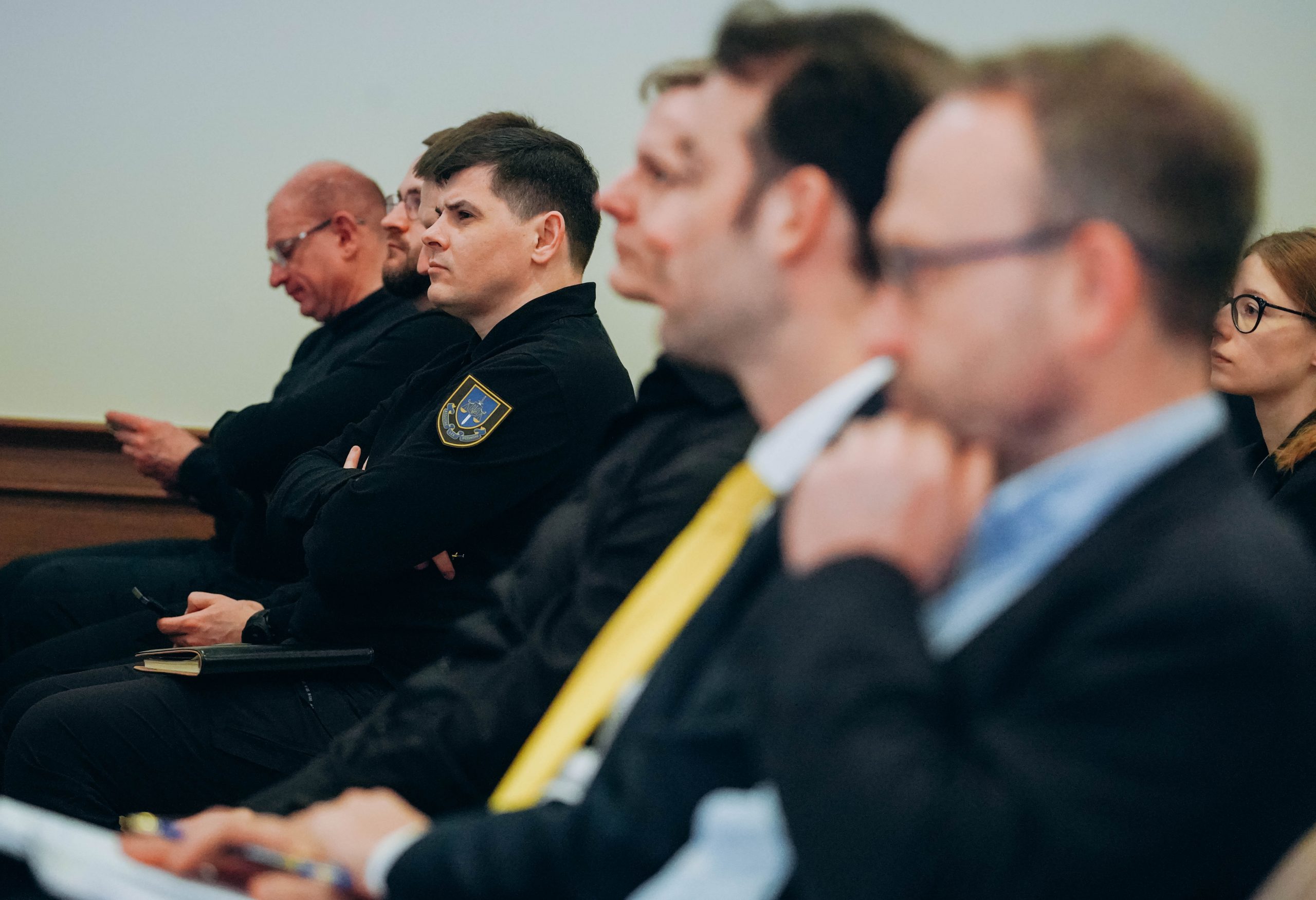
The representatives of the International Committee of the Red Cross (ICRC) contributed to the discussion, highlighting the deep impact of war crimes on individuals and communities. They also shared insights into the ICRC’s role, including its mandate to develop, disseminate, and monitor adherence to international humanitarian law.
A key focus of the afternoon session was on the crime of enforced disappearance and the contentious issue of collaborationism. Representatives from the non-governmental human rights center ZMINA addressed the legal and ethical dilemmas surrounding collaborationism, shedding light on the delicate balance between survival under occupation and aiding the enemy. Carolyn Edgerton, a Canadian lawyer with three decades of experience in domestic and international criminal investigations and prosecutions, shared her profound insights on the crime of enforced disappearance.
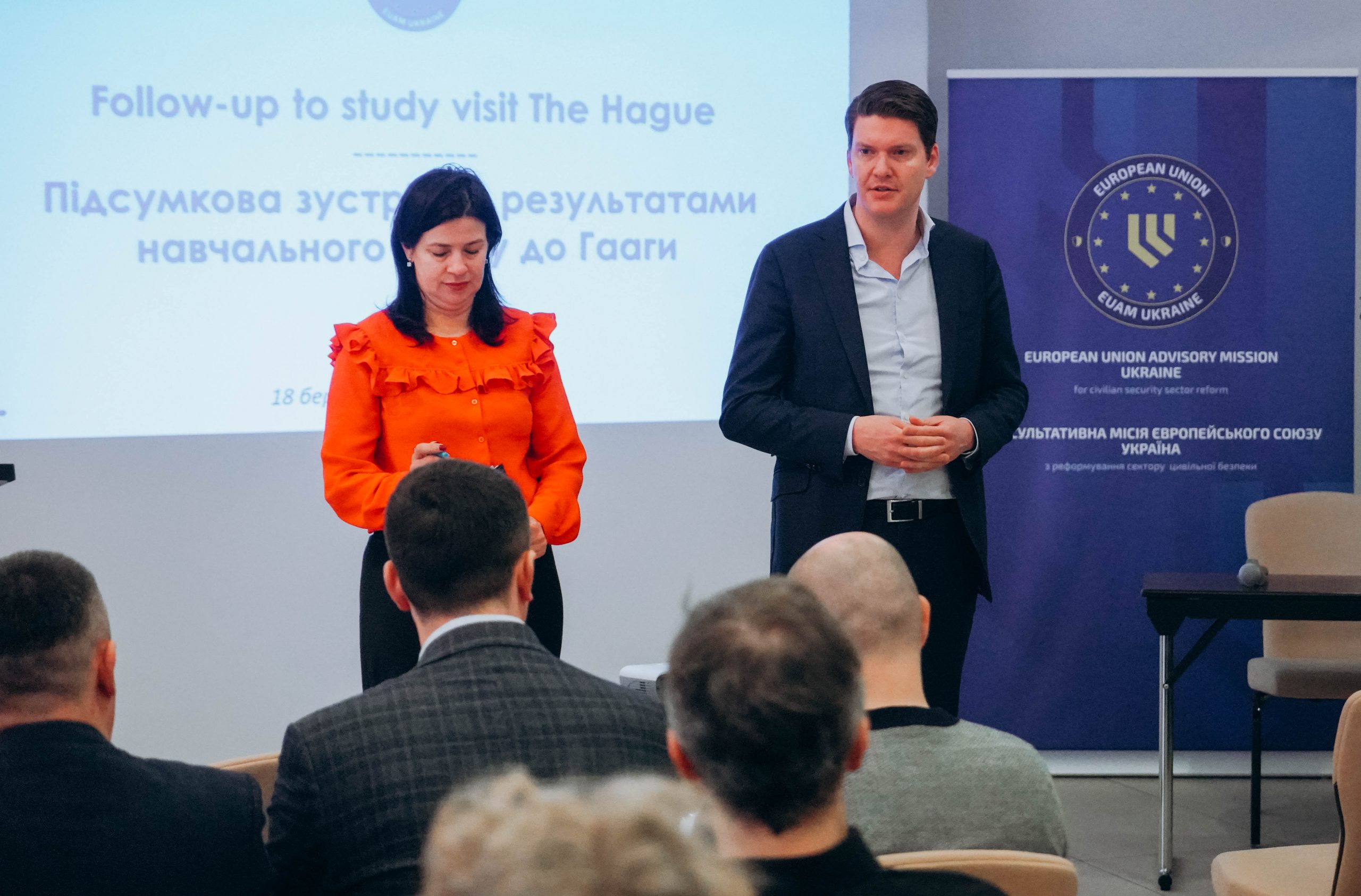
This was the third occasion when Ukrainian investigators and prosecutors had the privilege of learning from Carolyn Edgerton, one of the prominent lawyers who worked at the International Criminal Tribunal for the former Yugoslavia. Initially, participants met Carolyn in The Hague. Last week, following a request from Ukrainian partners after the October study visit, EUAM organised a workshop in Mykolaiv led by her on the war crime of terrorising civilian populations. This workshop was aimed at representatives from the regional prosecutor’s offices in Kherson and Mykolaiv, as well as local law enforcers from the Security Service of Ukraine and NPU. The workshop not only enhanced their understanding of specific crimes but also highlighted the importance of international legal expertise in developing effective investigative and prosecutorial strategies.
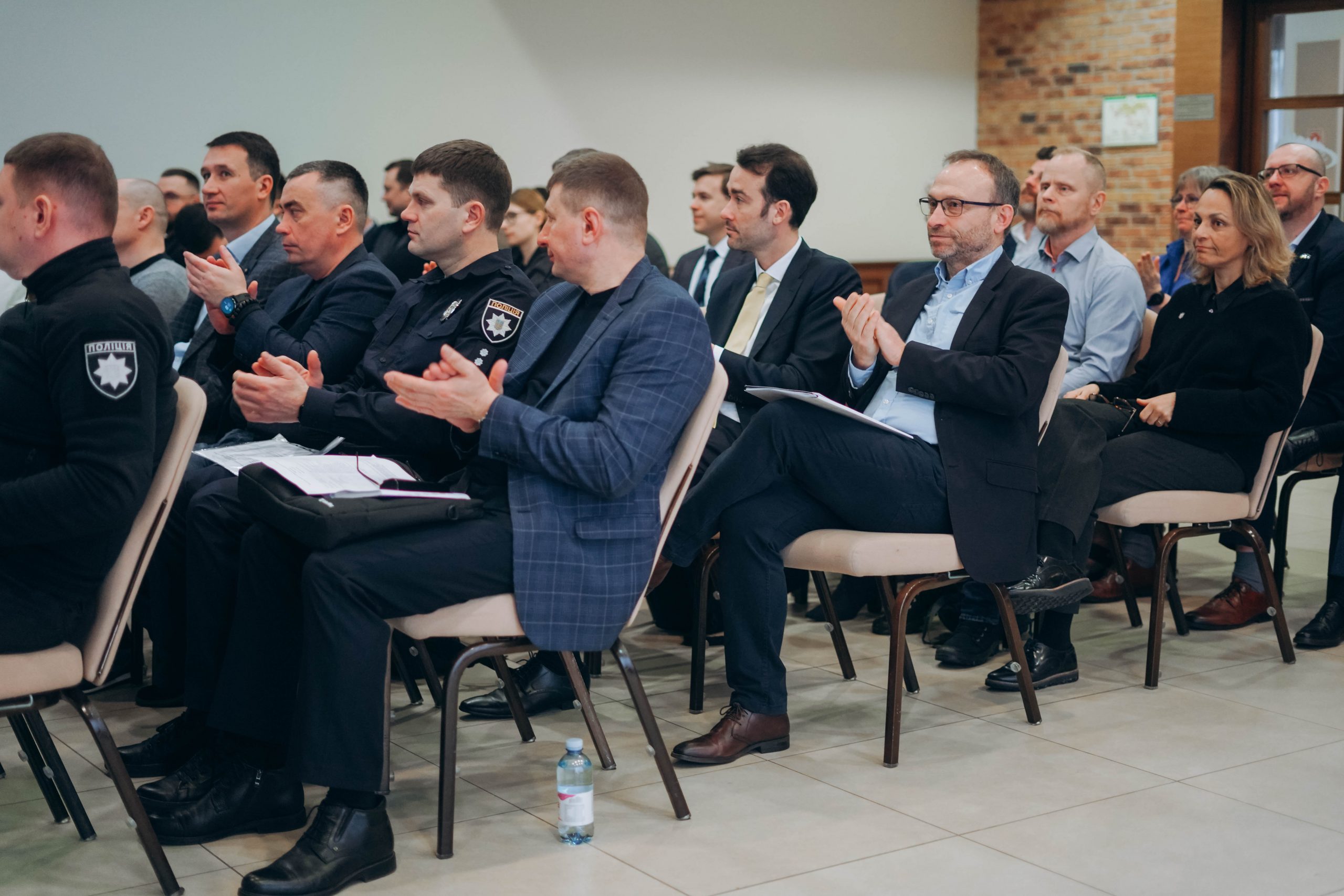
The follow-up event to the study visit in The Hague highlighted the ongoing need for enhanced cooperation and the sharing of best practices and innovations in the investigation and prosecution of international crimes. The EUAM, with its diverse expertise, remains committed to assisting its Ukrainian counterparts through advice, training, and hands-on support to facilitate bringing those responsible for international crimes to justice.


